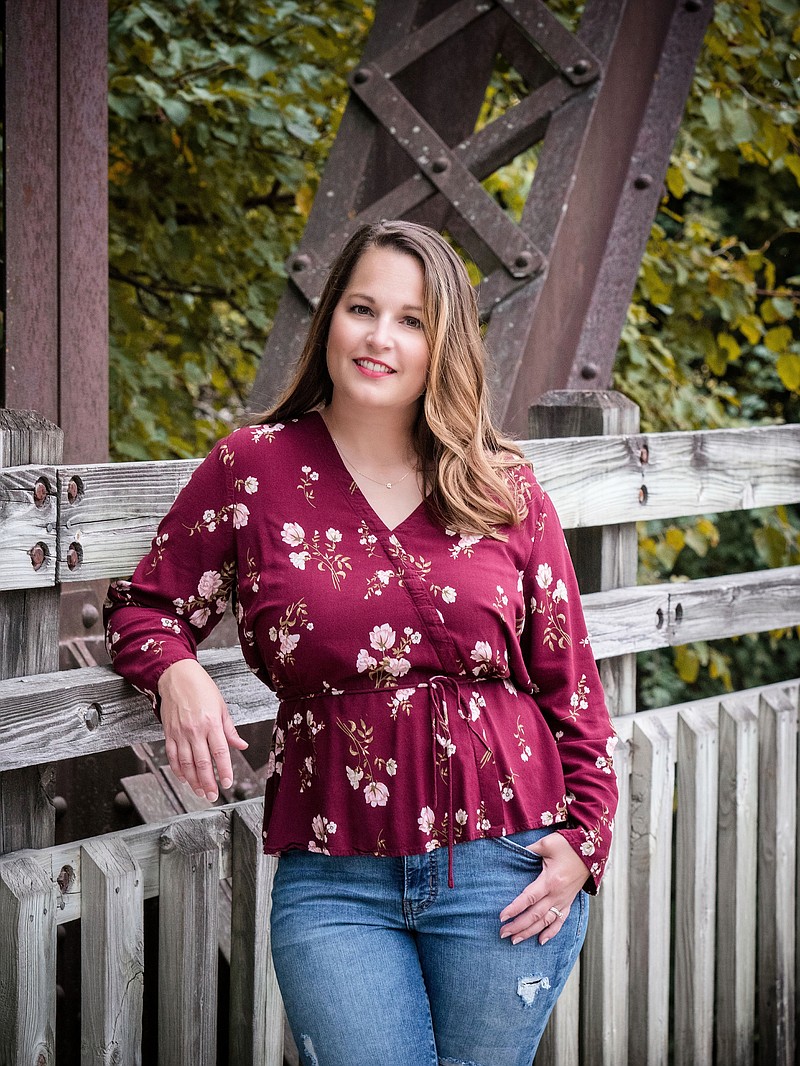Amy Bax fosters the curiosity of Lincoln University agricultural students with new experiences -- a similar approach she took to raising her own children.
Bax has served as an extension associate at Lincoln University for the past 12 years. She has two major responsibilities in that role: overseeing the university's small ruminant program and planning extension events.
Her work with the small ruminant program involves education and outreach to sheep and goat farmers throughout the state, which can include adult farmers to 4-H and FFA students. She's responsible for organizing Lincoln's annual sheep shearing school, in which participants learn the ins and outs of shearing and caring for sheep.
Bax also coordinates student tours of campus, extension outreach at the state fair, the annual FFA contest Lincoln hosts each year and agricultural field days, such as the regular hemp field days. She had a hand in coordinating a recent campus visit from Tom Vilsack, secretary for the U.S. Department of Agriculture. He toured Lincoln's agricultural research facilities, met with students and announced a new national initiative while at the university.
The work she relishes most, however, is interacting with students.
Bax sponsors two of the university's three agricultural student groups, all of which have a community service component. The LU Ag Club tends to have more social events, she said, while the LU FFA program is more focused on leadership and career skills.
Bax also assists with lab courses, but is not an instructor. Her role, she said, makes her like a big sister on campus to help students connect with resources.
"I try to do whatever I can to make them feel like Lincoln is their home," she said.
A growing number of students interested in agriculture are coming from more urban areas and don't always know what to do with an agriculture degree, Bax said, so they often limit themselves to becoming a veterinarian or driving a tractor.
"There's so much more to agriculture than that," Bax said.
"We've done different things to show them something that they might themselves become passionate about," she continued. "Agriculture is so many things."
Bax recently took a busload of students on a 750-mile tour of agricultural sites around southern Missouri, including a hemp facility in Sikeston and cotton ginning facility in Caruthersville.
Throughout the four-day trip, she exposed students to opportunities and experiences some had never considered. All of them walked away with new revelations, she said.
One of the stops was at FCS Financial, Missouri's largest agricultural lender.
"Two of them are very interested in becoming farmers and they don't stand to inherit any land from their families, and so they saw the opportunities that FCS offers for them to then maybe have a small holding of land themselves," Bax said. "It was a really good stop."
Bax said developing student connections and fostering independent passions is important to her.
"My hope is that we will do enough things that the kids will all find something that they're like, 'I didn't know that was a thing,' or 'I didn't know I liked that,'" she said.
The new experiences can also have the reverse effect. Bax said some students have been dead set on an agricultural career but changed their mind after experiencing a piece of it. "Those are good experiences, too," Bax said.
The approach Bax takes with students is similar to her own upbringing and how she raised her own children, who are now young adults.
Bax grew up on a family farm in Chillicothe and participated in FFA in high school. She said her advisers and instructors in high school were instrumental in shaping who she is as a person.
"I can't explain to you how FFA changed my life," she said.
Bax has been mentoring youth most of her life, starting out as an ambassador helping younger kids in 4-H. She also coached her kids' softball, tee-ball and soccer teams and led a troop of Girl Scouts. She remains a 4-H club leader to Clovers (ages 5-7) and Ambassadors (ages 8-18) despite her own two kids aging out of the program.
Her experiences with FFA and 4-H taught her practical skills, she said, and she appreciates the ability to pass those skills along to her own children and many others.
Bax traveled often with her children and they hung out with her Master Gardener friends and other 4-H kids regularly, she said, and that exposed them to a lot of different experiences.
If her kids showed an interest, Bax supported it. They didn't always align with what she had in mind, she said, but she supported it.
"They're not afraid to try to do new things, and I just-- I like that," she said.
"I tried not to say no to anything that was a learning experience," she added.
The same is true for her approach with agriculture students at Lincoln. One student wants to be a veterinarian, but Bax said she would also be an excellent agriculture teacher.
"She really could impact so many people if she was in front of a classroom, but I don't get to choose for her," Bax said. "So if you want to be a veterinarian, OK, how do we get you there?"
Some students are looking for direction and Bax, as a first-generation college student herself, said she can understand how difficult the transition to college can be.
"Having an ally and somebody they can go to is important to me," Bax said. "And it makes me feel good that they feel comfortable enough to come to me."
In the accompanying video, Lincoln University Extension Associate Amy Bax talks about why it’s important to offer students a variety of agriculture experiences.

